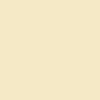Tag:natural=sand
Jump to navigation
Jump to search
| Description |
|---|
| An area covered by sand with no or very little vegetation. |
| Rendering in OSM Carto |

|
| Group: natural |
| Used on these elements |
| See also |
| Status: de facto |
| Tools for this tag |
|
An area covered by loose ![]() sand with no or very little vegetation. Sand is usually understood to be fine grained loose rock material with grain sizes between 0.0625 mm and 2 mm. In nature, sand occurs mostly as either wind blown deposits (sand deserts, dunes) or deposited by water on beaches or in form of sandbanks in the sea or in rivers.
sand with no or very little vegetation. Sand is usually understood to be fine grained loose rock material with grain sizes between 0.0625 mm and 2 mm. In nature, sand occurs mostly as either wind blown deposits (sand deserts, dunes) or deposited by water on beaches or in form of sandbanks in the sea or in rivers.
How to map
Draw an area ![]() and add natural=sand.
and add natural=sand.
Use in combination tidal=yes to explain the foreshore like you do with natural=bare_rock
Mapping caveats
This tag should not be used for:
- beaches, i.e. stretches of sand at the coast formed by wave action from the ocean - use natural=beach + surface=sand instead.
- flat areas with a muddy surface that are water covered at high tide but exposed at low tide - use natural=wetland + wetland=tidalflat instead.
- bare ground areas with a significant fraction of finer (silt, clay) or coarser material (gravel, shingle) - for some of these, other tags exist (natural=shingle for example)
- sandbanks under water at some times - use natural=shoal instead.
- solidified sand, i.e. sandstone - use natural=bare_rock instead.
- coarse mapping of larger non-vegetated areas, i.e. deserts - use natural=desert instead.
- individual static dunes in a larger sand covered area - use natural=dune instead.
- areas of mobile dunes that shift with the wind, i.e. an erg - use landform=dune_system instead.
- the infields of baseball or softball fields (a form of tagging for the renderer) - use surface=dirt instead.
If used for artificial sand areas like golf courses make sure to apply the appropriate tags indicating the purpose (like golf=bunker).
See also
| ||||||||||||||||||||||||||||||||
